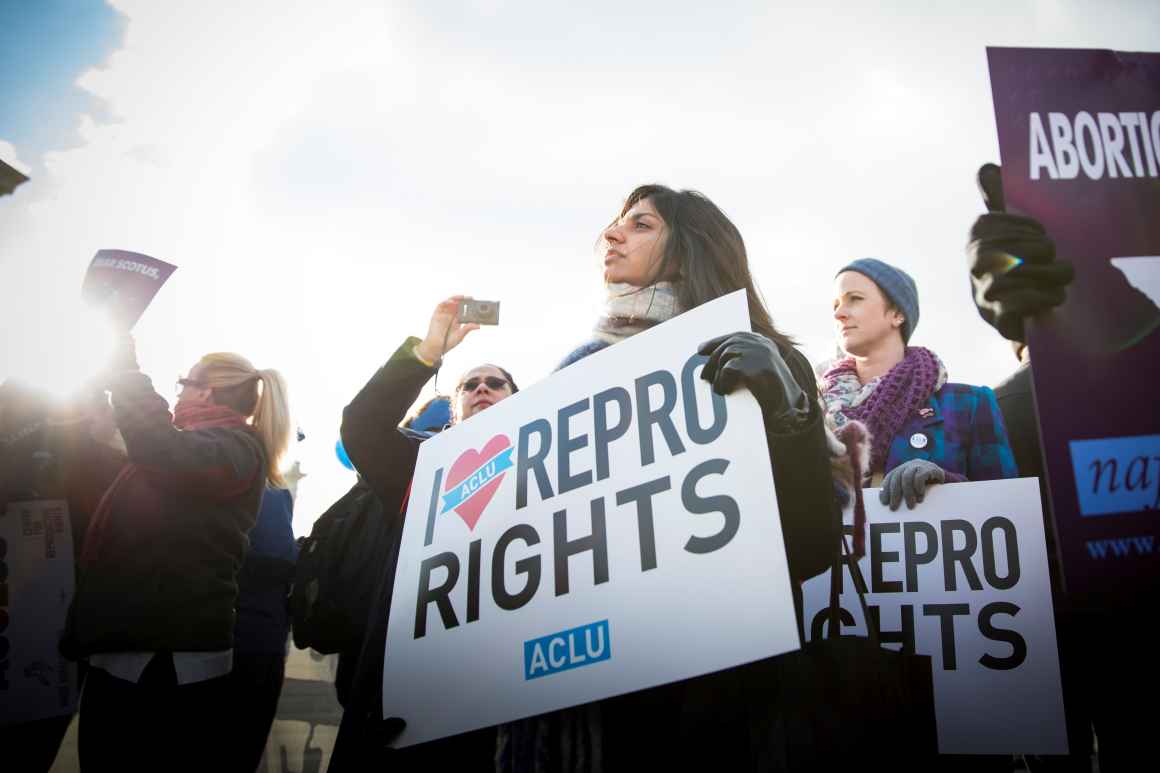By Amanda Mazur
It was my second pregnancy. Twenty-one weeks in, my husband and I learned that the baby suffered from a rare genetic disorder that caused severe congenital defects of major organs.
We were devastated.
Carrying the pregnancy to term would mean giving birth to a child that had almost no chance of survival, and would face a brief life severely hampered by overwhelming medical issues if the fetus did manage to survive until birth. Given that tragic diagnosis, we decided that the best thing for our family, including our living daughter who was still a toddler at the time, would be to have an abortion.
Fortunately, with the help of a compassionate medical team, I was able to have the procedure done legally and without complications. Which is why I am one of the more than 30,000 people who have volunteered to put Reproductive Freedom for All (RFFA) on the November ballot by collecting the required 425,059 signatures by July 11. RFFA will explicitly affirm in the state constitution our right to make decisions about abortion, birth control, miscarriage care, and childbirth without politicians interfering.
I will be forever thankful that my husband and I were able to make a difficult and extremely personal decision based solely on my health, our family’s needs, and the medical advice we were receiving, and that there wasn’t some backward-facing law or politician’s personal beliefs blocking the way to the path we knew our family had to follow.
Now, the best way for me to express that gratitude is to help make sure that, going forward, others will be able to make the same unobstructed decisions about their pregnancies. That’s what RFFA will do – maintain the rights we currently enjoy.
I must admit that I was a bit intimidated by the prospect of collecting signatures at first. I live in a rural part of Michigan, and was uncertain about how people would respond when I approached with petition in hand asking them to sign.
What I quickly learned is that, even in a part of the state that is staunchly conservative, support for reproductive freedom is encouragingly strong. Honestly, I’ve been blown away by the positive reaction of so many people who’ve been eager to put their names on a petition. Some of the signatures have been from people who know me and what I’ve been through, and are supportive of my intense desire to make sure others continue to have the same reproductive rights I and my husband relied upon. But I’ve also received encouraging responses from many others, ranging from members of the faith community to women from my mother’s and grandmother’s generations who know how dark times were before the U.S. Supreme Court’s landmark 1973 decision in Roe v. Wade and don’t want to see this state going in reverse.
With the U.S. Supreme Court poised to overturn Roe, using RFFA to amend the state constitution is a way to guarantee all Michiganders retain the right to the reproductive health care they need, including access to abortions, no matter what the Court decides.
I’m incredibly heartened by the responses I’ve been getting, but want to stress that this is no time to be complacent. The number of signatures that need to be collected is significant, and the time to gather them extremely short.
So, if somebody approaches you and asks to sign a petition to put RFFA on the ballot, please do so. Even better, go to mireproductivefreedom.org and volunteer to collect signatures yourself. I can’t tell you what a positive and rewarding experience it has been to join such a diverse and committed group of people working so diligently on such a worthwhile cause.
It is a feeling that will be magnified many times over when we succeed in placing RFFA on the ballot and then turn out the vote to get it passed come November. We need to ensure that all of us, along with our healthcare providers, continue to have the freedom to decide what medical care is necessary for each of us when making highly personal decisions regarding pregnancy.
Please join us in helping make that happen.
Amanda Mazur is a volunteer for the ACLU of Michigan and the Reproductive Freedom for All campaign. You can learn more about the campaign and the ballot initiative at mireproductivefreedom.org


